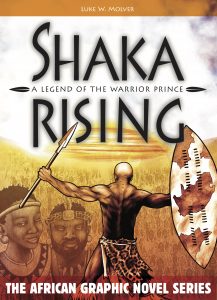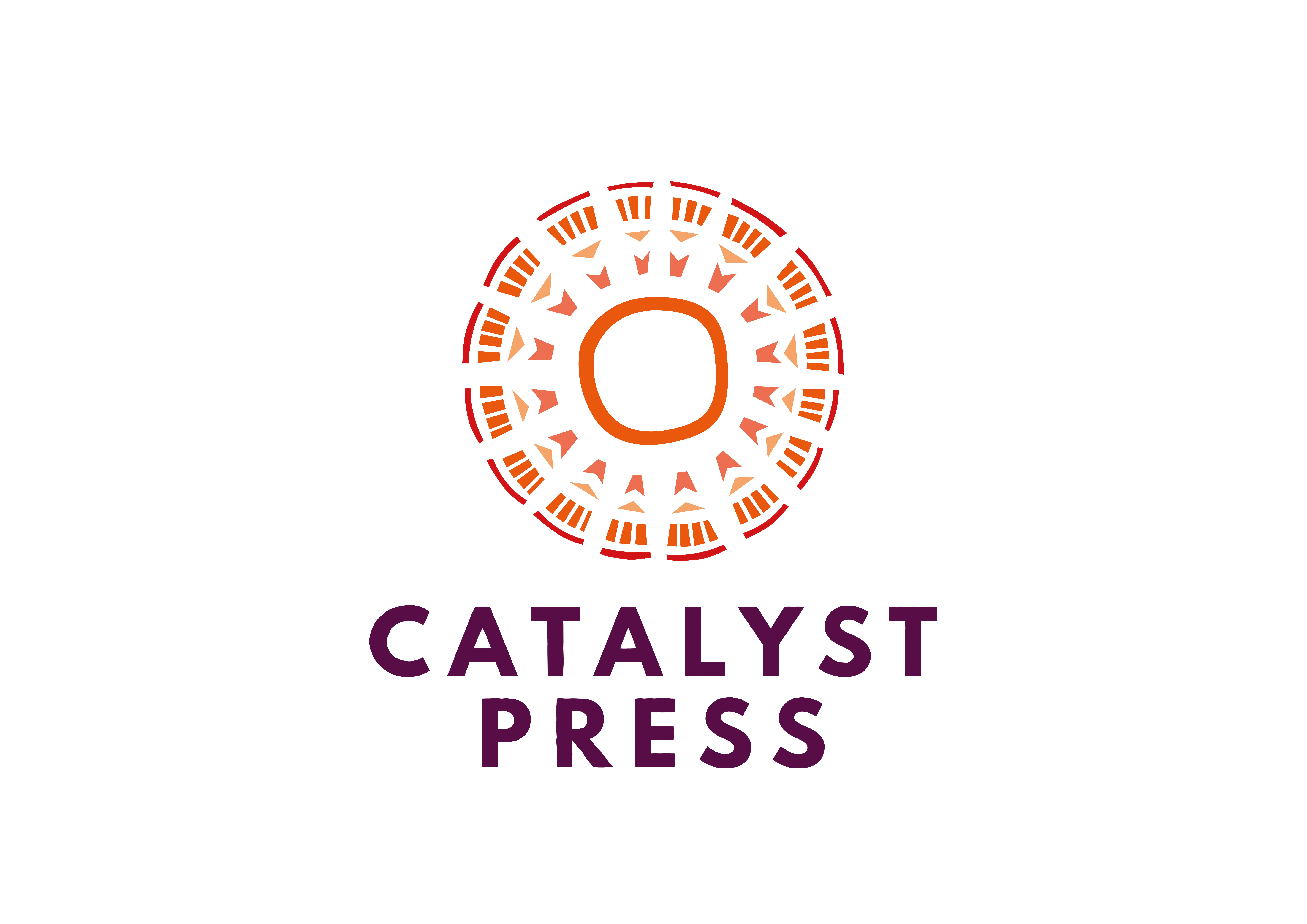Our monthly newsletter is full of good stuff. We’ve got author news, events, and special sales. We have a good time there. Part of that good time is also being able to publish Q&As with our authors and partners that we then get to share with you. We’ve been republishing these Q&As here at our blog (you can read them here), but if you want to be among the first to read them, you can subscribe to our newsletter here!
The Q&A we’re sharing this time is with our South African partners, Jive Media Africa. We’ve teamed up with them to create our imprint Story Press Africa. Story Press Africa’s mission is to bring African histories and figures to life in the pages of our African Graphic Novel Series. The first installment in the series was Shaka Rising, and we’re so excited to bring more stories like this to readers everywhere.
Our imprint Story Press Africa isn’t our work alone. This children’s and young adult imprint is a collaborative project between Catalyst and our amazing partners in South Africa, media and communications company Jive Media Africa. Our first release, Shaka Rising: A Legend of the Warrior Prince, is a graphic novel retelling the legend of Zulu leader Shaka. This book is the first in many, many more scheduled for release from Story Press Africa, and part of a much larger mission. We want to tell African stories, teach African history, and give young readers the opportunity to explore the heroes and legendary figures who have shaped African and world history.
The team at Jive Media Africa—Albert Modi, Robert Inglis, and Hilary Kromberg—tell us a bit more about their work, the Story Press Africa mission, and plans for the future. Keep up-to-date with Jive Media Africa on Twitter at @JiveMediaAfrica
 Tell us about Jive Media Africa.
Tell us about Jive Media Africa.
Humans are wonderfully curious. Making discoveries and inventing is part of what makes us human. But in modern times the public has become quite isolated from the world of research.
We work with researchers to recreate connections between people and knowledge across multiple research fields, applying the best available media to make those connections. It’s challenging, exciting and rewarding.
In the case of Shaka, we wanted to be part of sharing some of the new perspectives that are starting to emerge among researchers about who he was, and what his legacy is. We hope readers enjoy Shaka Rising and enjoy being a part of that story – which is all of our stories.
Why did you decide to start Story Press Africa?
Who are you and how did you get here? If you want answers to those questions, you are not alone. We love to find out more about our past. It helps us build a stronger sense of ourselves and that gives us the confidence we need to relate to others.
Humans originated in Africa and with them storytelling as a means for passing information and ideas between people and between generations. Stories are for sharing and Africa has a wealth of incredible stories to share. Story Press Africa shares great African stories with the world.
Why did SPA choose to start with the story of Shaka?
King Shaka is a fascinating historical figure who has been portrayed in many different ways since his dramatic rise to power and his ultimate assassination. Whether feared or revered, Shaka has intrigued audiences for over 150 years, and continues to do so to this day.
The story of Shaka presents an opportunity to explore the tumultuous political and social history of southern Africa and to reflect on the legacy of a powerful leader. The story of Shaka Rising teaches us that history is not simply about the past – it’s about how the decisions we make affect our collective futures.
What other African historical figures would you like to spotlight in future graphic novels in the African Graphic Novel Series?
There are so many great African stories to tell and so much African knowledge and wisdom to share. We want to tell stories of people and events that have shaped the continent of Africa. We also want to work with African artists to tell those stories. Emperor Mansa Musa, Dona Beatriz, Modjadji the Rain Queen, amongst many others…
What do you most want North American readers to take away from SPA books?
We want readers to really enjoy these stories. That’s the most important thing, by far.
We also want readers to feel proud of these stories. African stories are part of all our stories, part of the collective consciousness of all people, everywhere, and an opportunity to see the world, and ourselves, in a different way. There are so many stories and together they weave the rich tapestry of humanity.
History is often written from the perspective of those who “win” – for example the colonialists in Africa. That history is being re-written and we want to see these new perspectives shared widely. In this way, young people, who are our future, can learn from history, both from its successes and failures.



